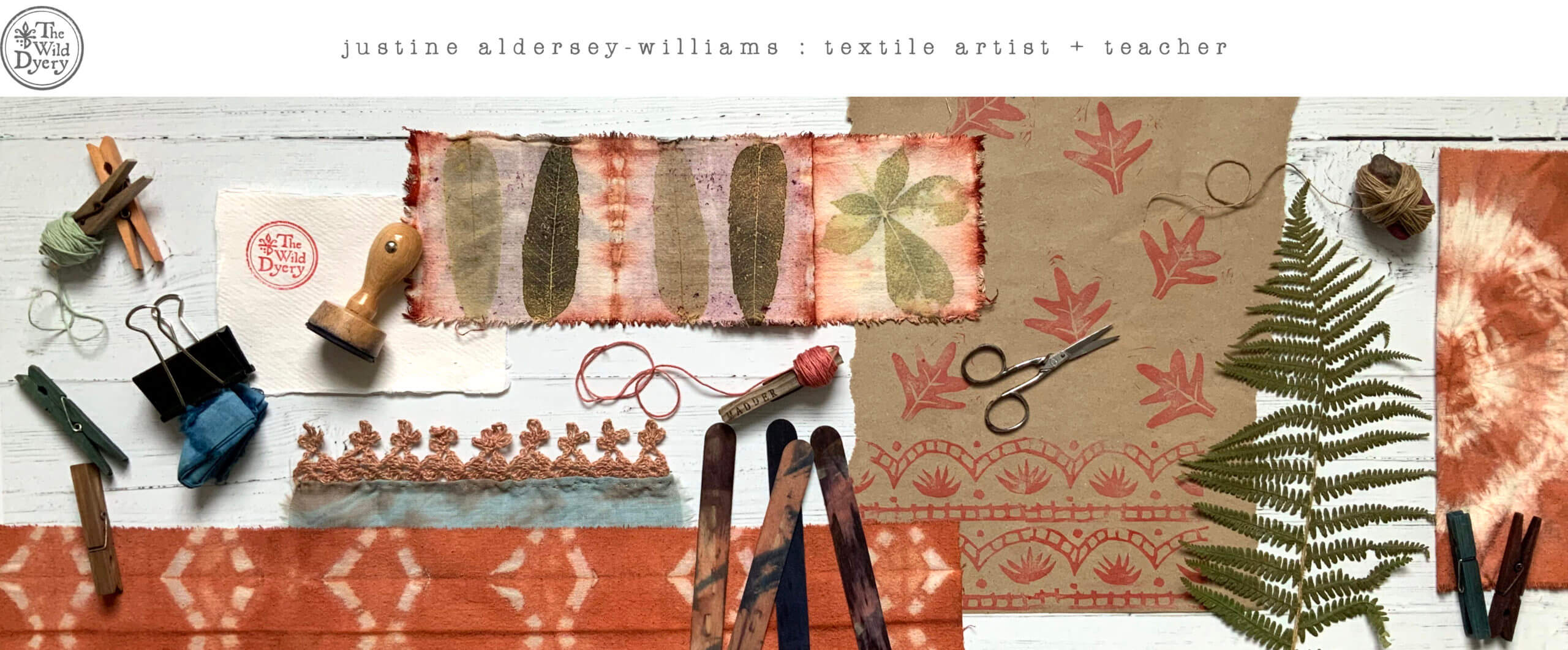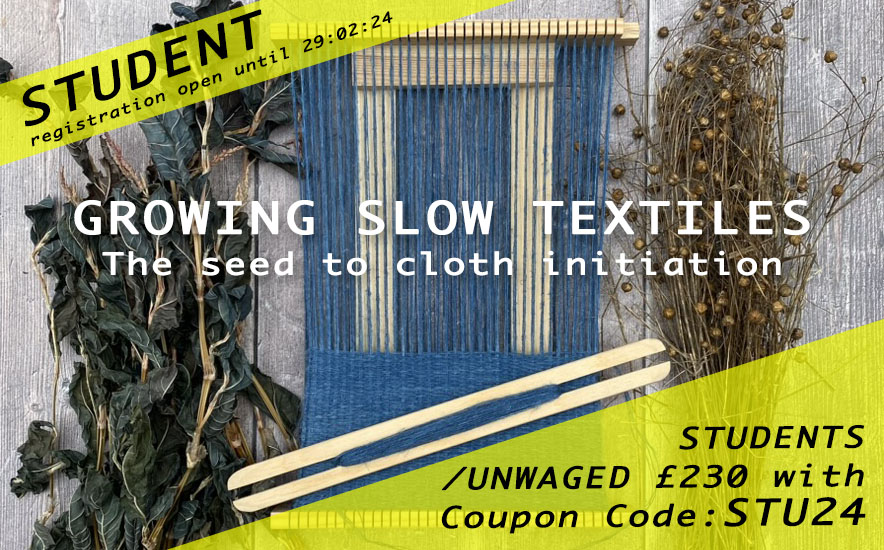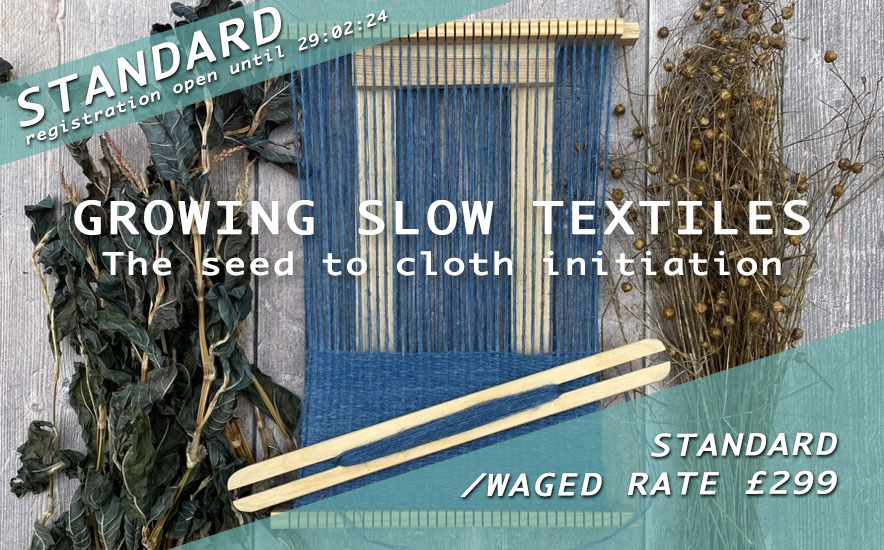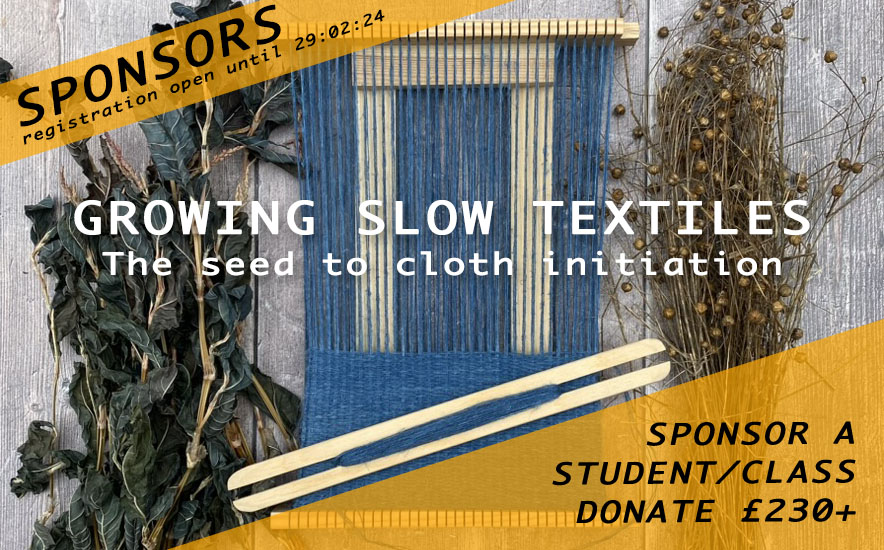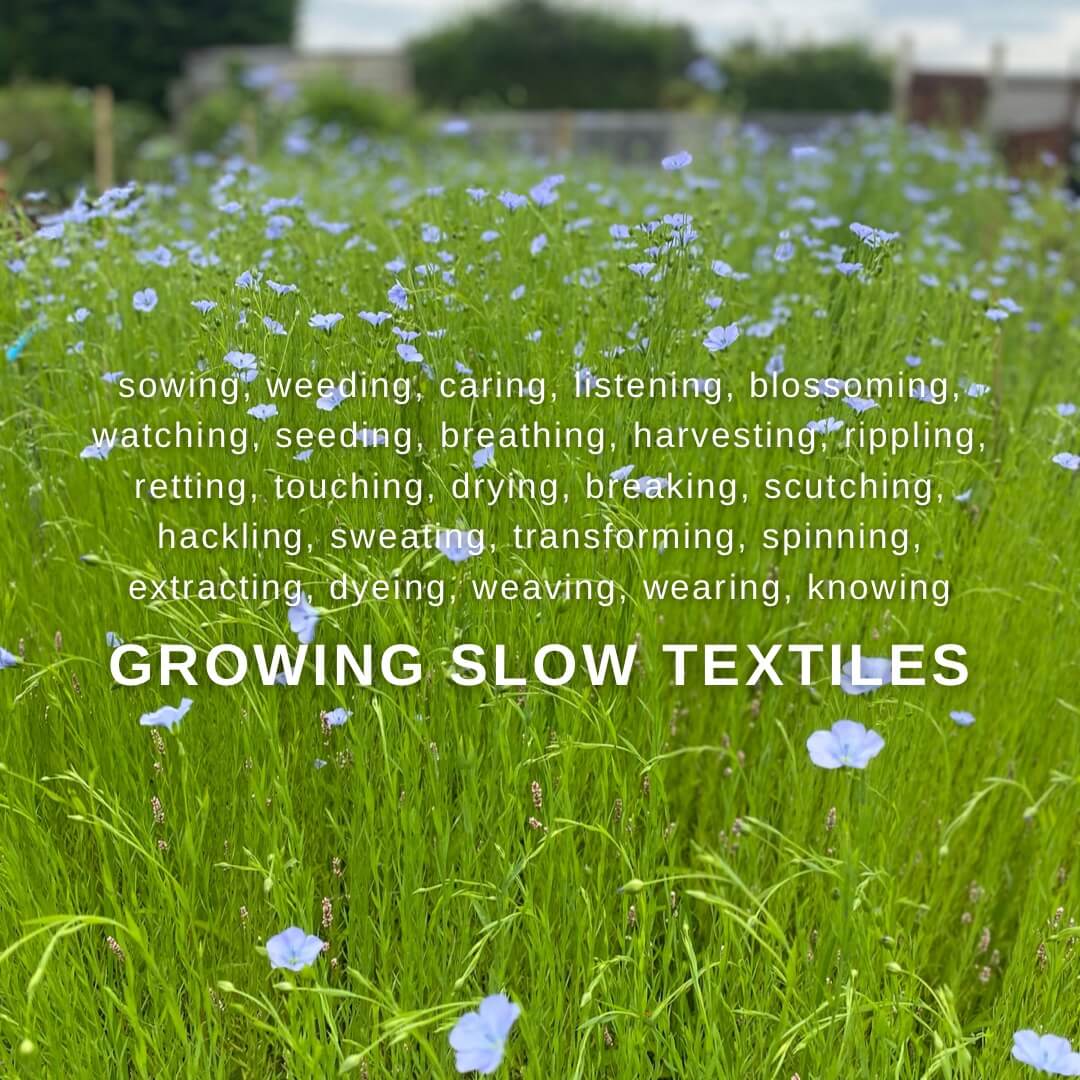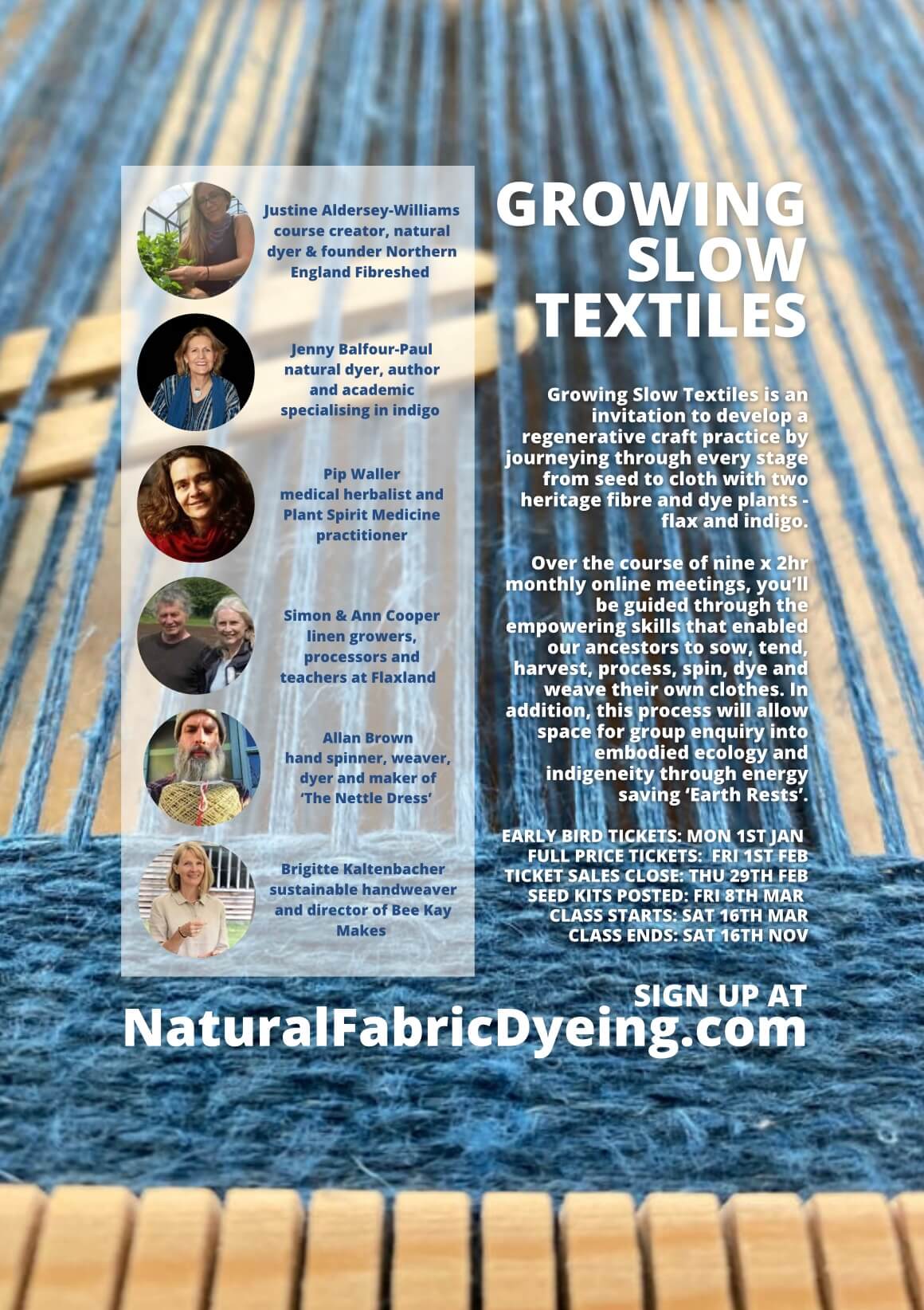“We are stardust, we are golden, we are billion year old carbon and we got to get ourselves back to the garden.” - Joni Mitchell
Growing Slow Textiles is an invitation to develop a regenerative craft practice by journeying through every stage from seed to cloth with two heritage fibre and dye plants - flax and indigo. During this holistic process you’ll join a pioneering community exploring deep ecology and defining for ourselves what it means to be ‘Earth Restorers’.
Over the course of nine x 2hr monthly online meetings, you’ll be guided through the empowering skills that enabled our ancestors to sow, tend, harvest, process, spin, dye and weave their own cloth. In addition, this process will allow space for group enquiry into embodied ecology and indigeneity.
The restoration of the planet will be pleasurable. - Sophie Strand
Some of the practical skills shared include:-
-
regenerative growing principals
-
rippling, retting, breaking, scutching and hackling flax
-
drop spindle linen spinning
-
indigo pigment extraction and both vat and fresh leaf dyeing
-
hand weaving your own indigo linen pieces of cloth
More important than any expected product though will be the regenerative process.
What’s included?
-
9 X 2hr monthly online meetings (schedule below)
-
9 x downloadable Earth Rests meditation sessions exploring deep ecology
-
9 months access (until 31:12:24) to a private classroom with meeting recordings for revision
-
Weekly Q&A with course facilitator via private forum
-
Seed kit containing woad, Japanese indigo and licensed flax fibre seed (1m²)*
-
Student work showcased @growingslowtextiles
We’ll be joined by fibre and dye specialists 10am-12pm on the following provisional monthly meeting dates (TO BE CONFIRMED)
March 16th: Seed Blessing - a full introduction to the course including website orientation, seed blessing and planting instructions.
April 20th: Being Restorative - introduction to Fibershed’s regenerative growing principals, key projects and the importance of rest to planetary restoration.
May 18th: Plant Spirit Medicine Journey with Flax and Woad with medical herbalist Pip Waller, exploring the healing possibilities of communion with plant allies and what it means to be indigenous.
June 15th: Deeper than Indigo - a talk by acclaimed author Jenny Balfour-Paul, specifically considering the folklore, myths and magic of indigo dye within various cultures.
July 20th: Indigo Pigment Extraction & Dyeing - I’ll take you through the entire process from plant to coloured yarn.
August 10th: Rett, Break, Scutch & Hackle - Simon and Ann Cooper from Flaxland will demystify flax processing techniques in time for our harvest. We’ll also make flax dollies to bless next year’s crops.
September 14th: Drop Spindle Spinning with Allan Brown who specialises in processing, spinning and weaving native textile crops including flax and nettles.
October 19th: Hand Weaving an Indigo Linen Patch with Brigitte Kaltenbacher of Bee Kay Makes.
November 16th: Show & Tell - we’ll share our results and learning experiences.





